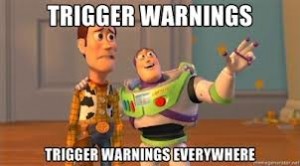Many of my friends and I troll each other a lot online. Those who doesn’t know us might think we’re mean-spirited old geezers. But really, it’s how we show affection and even respect. It’s how we know we’re buddies.
Mood Music:
In this era of lockdowns and political dysfunction, a lot of people are easily offended. That was true before the pandemic, too, but with life as upended as it currently is, people have reached new levels of prickliness.
This post isn’t about how people should behave. Who am I to tell anyone what to think or how to feel? It is, however, about how I personally choose to carry on with people whether I agree with them or not.
My friends fall into the following three categories:
- Group A thinks all the mask wearing, school closing and economic lockdown is a government plot to enslave us.
- Group B thinks Group A is a bunch of right-wing thugs willing to let people die to preserve their economic comforts.
- Group C tries to urge calm and point to sunnier days ahead, sometimes ignoring realities staring them in the face.
I’ve jumped between the three groups since the pandemic began. I don’t think current safety measures are a plot to steal our freedom, though I do worry about government amassing levels of new power we won’t be able to claw back.
I don’t think all of those who oppose social distancing and lockdowns have their head in the sand. Some have prepared for many kinds of emergencies as a matter of course.
I agree with those who believe that if we freeze the economy for too long, there won’t be much of an economy left when it’s all over.
I mostly fall into the C group. I always go looking for the bright side, sometimes to a fault. No apologies here — we need hope to battle through the tough stuff.
I’m going to continue to share articles I believe are from reliable sources and have details we can use to plot our way forward. Some of those will be scary articles about China and bio warfare (never thought I’d share from The EpochTimes, but I trust the writer). Some will paint pictures of economic depression, because we have to be realistic about what we face and plan accordingly. Many will show the better side of humanity during this emergency, because we need reminders that humanity is capable of good.
Some of my friends will affix the laughing emoji to the comments and drop memes and gifs suggesting that I’m overreacting. Others will use the comments section to question my sanity, conclusions or whatever else comes to mind.
I see people on Facebook who hate being questioned or disagreed with. They respond with words like “asshole,” “liberal,” “fascist,” “communist” or just react with the standard “fuck you.” That’s unfortunate, but I wish them well.
To those in my orbit who want to troll: Have at it. You may be idiots, but you’re my idiots.


